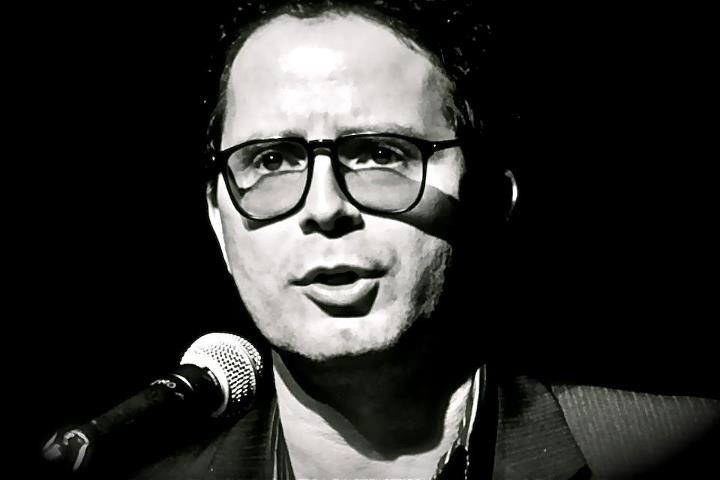The report, by the International Human Rights Law Clinic at UC Berkeley School of Law, calls on the U.S. government to give Colombian authorities access to these extradited drug lords for their own criminal investigations. By supporting Colombia’s human rights probes, the U.S. may help bring an end to that country’s cycle of violence, according to the report.
The defendants in U.S. custody include the top commanders of Colombia’s most powerful paramilitary group, the United Self-Defense Forces of Colombia (AUC), formed decades ago to fight left-wing guerrillas. The group morphed into a powerful drug-trafficking network that massacred, forcibly disappeared, and tortured thousands of civilians, according to Colombian law enforcement. The U.S. has extradited 30 AUC members on drug-related charges.
 As part of their efforts to seize control of land and drug routes, extradited paramilitary leaders allegedly targeted trade unionists and other civilians whom they perceived as threats. Before extradition, the AUC leaders had begun to disclose information about these and other crimes as part of a Colombian demobilization program. It offered legal leniency and public benefits to any paramilitary member in exchange for an agreement to disarm, forfeit assets, and confess. The leaders’ testimony soon revealed not only details about mass atrocities, but also of political corruption, rigged elections, and collusion with elected and military officials.
As part of their efforts to seize control of land and drug routes, extradited paramilitary leaders allegedly targeted trade unionists and other civilians whom they perceived as threats. Before extradition, the AUC leaders had begun to disclose information about these and other crimes as part of a Colombian demobilization program. It offered legal leniency and public benefits to any paramilitary member in exchange for an agreement to disarm, forfeit assets, and confess. The leaders’ testimony soon revealed not only details about mass atrocities, but also of political corruption, rigged elections, and collusion with elected and military officials.
The disclosures led to criminal investigations of high-level politicians. However, since the U.S. extraditions, the paramilitary leaders’ cooperation with Colombian investigators has effectively stopped.
“U.S. policymakers have a moral and legal responsibility to cooperate with Colombian law enforcement to solve these horrific crimes,” said Roxanna Altholz, associate director of the International Human Rights Law Clinic. “The paramilitary leaders in U.S. custody are seeking agreements with the Department of Justice in order to lower their sentences,” she said. “It is up to U.S. government prosecutors and courts to incentivize them to talk about the murders, kidnappings, and disappearances committed in Colombia.”
The plea agreements that are publicly available between the Department of Justice and extradited defendants do not contain incentives for them to cooperate with Colombian law enforcement or to reveal the details of their human rights crimes. Frustrated by blocked investigations, Colombia’s Supreme Court has halted future extraditions of demobilized paramilitaries to the United States, undermining U.S. counternarcotics efforts.
The United States has invested hundreds of millions of dollars in Colombia’s legal system with the aim of creating an effective partner for counternarcotics efforts, says Altholz. Yet free trade negotiations between the U.S. and Colombia have stalled over concerns about Colombia’s failure to investigate the murders of trade unionists.
“If the U.S. actively supports Colombian accountability measures, Altholz says it can help that country strengthen its rule of law, address unsolved murders of Colombians, and disband its violent drug cartels.”
Two Berkeley Law human rights clinic students — Noah Smith '10 and Gretchen Gordon '11 —wrote the new report and conducted extensive legal research under Altholz’s supervision.
“Colombian prosecutors and judges face limited access to defendants in U.S. custody,” said Smith, “which has stymied that country’s efforts to expose political corruption and collusion between elected officials and the paramilitary.”
"The U.S. is missing a rare opportunity to help dismantle the paramilitary drug cartels that have had a stranglehold on Colombia for decades," said Gordon. "Cooperation with Colombian accountability efforts would not only promote justice for human rights victims, but would also help to combat narco-terrorism and root out corruption.”
Truth Behind Bars recommends that the U.S. reform its policies and practices regarding criminal prosecutions of extradited Colombian paramilitaries by taking the following steps:
• Create an effective procedure for judicial cooperation with Colombia. Provide timely, consistent, and reliable access by Colombian prosecutors, judges, and victims to extradited paramilitary commanders. Share information obtained by U.S. law enforcement from extradited paramilitaries.
• Incentivize extradited paramilitary leaders to disclose details about all their crimes and reveal the identities of their accomplices in the Colombian military, government, and national and foreign businesses. Condition sentence reductions or other benefits achieved through plea-bargaining on effective cooperation.
• Initiate investigations for torture committed by paramilitary leaders in U.S. custody.For news interviews, please contact Roxanna Altholz, associate director, International Human Rights Law Clinic, 510.643.8781, raltholz@law.berkeley.edu

No comments:
Post a Comment